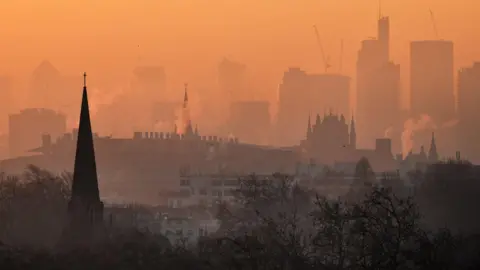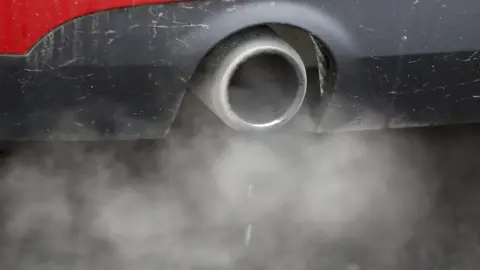Covid: Air pollution increases risk of hospitalisation, study finds
 BBC
BBCLiving in areas of high air pollution increases the risk of hospitalisation with Covid-19 a new study has found.
Imperial College London researchers also found evidence people living in polluted areas may have an increased risk of catching the disease.
The review is the most "comprehensive overview" of studies on air pollution and coronavirus, researchers said.
Sadiq Khan said: "We cannot turn a blind eye to the clear evidence showing the dangers of toxic air pollution."
The London mayor, who commissioned the study, said: "This new review led by Imperial researchers makes it crystal clear that tackling air pollution is a vital part of building our resilience to Covid-19, and other infections like it.
"The decisions we make now to tackle air pollution are truly a matter of life and death," Mr Khan added.
 Reuters
ReutersLong-term exposure to air pollution increases susceptibility to worse outcomes from Covid, the report found.
But researchers found particulate matter - large airborne particles - did not appear to play any important part in transporting Covid-19, as had been suggested by some earlier studies.
In addition, inconsistent results were found for studies of long-term exposure to air pollution and the number of Covid cases.
Scientists said that as the pandemic is less than two years old further research will be necessary "to strengthen these emerging findings".
The report comes ahead of the planned expansion of London's Ultra Low Emission Zone next month.
A recent study by City Hall found 98% of schools are in areas with toxic air quality, compared with 24% outside the capital.
Excessive levels of air pollution can stunt lung growth and worsen chronic diseases.
